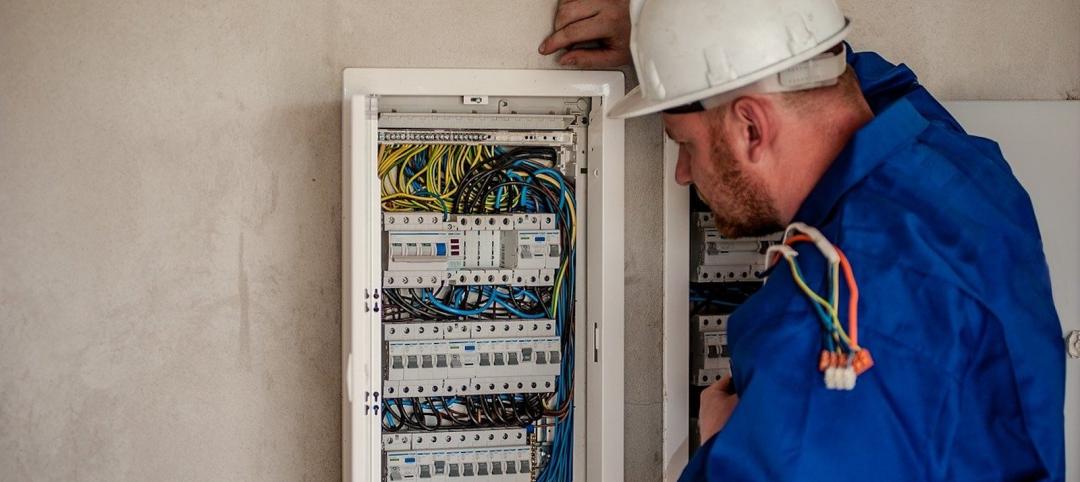New Buildings Institute (NBI) recently released a guide to help schools identify funding programs for facilities improvements available from federal and state government programs.
“The Decarbonization Roadmap Guide for School Building Decision Makers and accompanying toolbox of resources can help districts leverage these funding opportunities to develop a district decarbonization roadmap to identify cost-effective strategies and approaches to achieve net zero carbon and other greenhouse gas emission reductions across a portfolio of buildings,” according to an NBI news release. The document provides key elements for creating a roadmap, outlining goals and approaches to consider when building lifecycle events occur.
The guide was developed during the inaugural Getting to Zero Over Time in California Schools cohort, facilitated by NBI and the California Division of the State Architect’s Sustainability Education & Outreach Program. “Efforts like this will springboard and showcase the leadership of the school sector working towards achieving the California state goal of economy-wide decarbonization by mid-century,” said Ida Clair, California State Architect.
Funding opportunities are part of the 2021 Infrastructure Investment and Jobs Act and the 2009 American Recovery and Reinvestment Act Energy Efficiency and Conservation Block Grants. These programs, as well as federal financial support for state energy offices and the Federal Emergency Management Agency, will provide schools with financial support to bring buildings and district portfolios up to modern standards and provide resilient community spaces.
Related Stories
Codes and Standards | Mar 24, 2022
New York senate moves to speed up fossil fuel ban in new buildings
Lawmakers in the New York State Senate are backing a proposal to ban fossil fuels in new building construction three years sooner than a plan proposed by Gov. Kathy Hochul.
Codes and Standards | Mar 23, 2022
High office vacancies have cities rethinking downtown zoning
As record-high office vacancies persist in U.S. urban areas, cities are rethinking zoning policy.
Codes and Standards | Mar 22, 2022
Dept. of Energy awards $32 million for next-generation building retrofits
The U.S. Dept. of Energy has awarded a total of $32 million for more than 30 next-generation building retrofit projects that will dramatically improve affordable housing technologies, according to a DOE news release.
Legislation | Mar 18, 2022
New framework to help site community solar projects released
The Solar Energy Industries Association (SEIA) released a new report to aid policymakers in siting community solar projects.
Codes and Standards | Mar 17, 2022
Dept. of Energy seeks input on building-integrated photovoltaic systems
The U.S. Department of Energy (DOE) Solar Energy Technologies Office (SETO) and Building Technologies Office (BTO) recently issued a request for information to gather input on technical and commercial challenges and opportunities for building-integrated photovoltaic (BIPV) systems.
Legislation | Mar 16, 2022
Weak federal commercial real estate rules will hamper seizing Russian assets
Lax disclosure regulations that have made the U.S. a global hot spot for money laundering via real estate holdings will make it difficult for officials to seize properties from Russian oligarchs.
Codes and Standards | Mar 15, 2022
First company awarded Fitwel Certification in Senior Housing for Occupant Health & Wellness
The Springs at Greer Gardens in Eugene, Ore., is the first property to earn a Fitwel global health certification under the newly created senior housing scorecard.
Codes and Standards | Mar 10, 2022
HOK offers guidance for reducing operational and embodied carbon in labs
Global design firm HOK has released research providing lab owners and developers guidance for reducing operational and embodied carbon to meet net zero goals.
Codes and Standards | Mar 7, 2022
Late payments in the construction industry rose in 2021
Last year was a tough one for contractors when it comes to getting paid on time.
Codes and Standards | Mar 7, 2022
Massachusetts proposed energy code changes don’t ban gas
Proposed changes to the Massachusetts energy code would provide incentives for builders to fully electrify buildings, but not impose a ban on natural gas hookups.

















